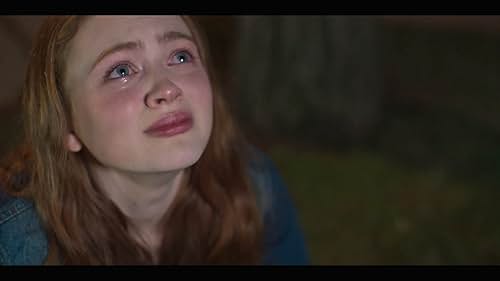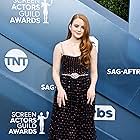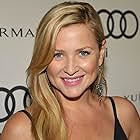When Tess and her family suffer an unimaginable loss, she finds support from a surprising source: her biological father - a lovable slacker from the wrong side of the tracks - and the charmi... Read allWhen Tess and her family suffer an unimaginable loss, she finds support from a surprising source: her biological father - a lovable slacker from the wrong side of the tracks - and the charming but dangerous juvenile delinquent next door.When Tess and her family suffer an unimaginable loss, she finds support from a surprising source: her biological father - a lovable slacker from the wrong side of the tracks - and the charming but dangerous juvenile delinquent next door.
- Awards
- 2 wins
- Zoe Gladstone
- (as MacKenzie Noel Rusiewicz)
- Director
- Writers
- All cast & crew
- Production, box office & more at IMDbPro
Storyline
Did you know
- TriviaBased on the novel Dear Zoe by Philip Beard.
- Quotes
Nick DeNunzio: You stay away from him, you hear me?
Tess DeNunzio: But I'm almost 17. I'm not a little girl anymore.
Nick DeNunzio: Yeah, well, it's my house, so it's my rules.
Tess DeNunzio: My body, my rules.
- SoundtracksLosing You
Written by Carmen Bradley and Whitney Dean
Performed by The Sweeplings
Courtesy of The Sweeplings
Under exclusive license to Nettwerk Music Group Inc.
It is possible to see how the story follows this pattern of young adult literary novels from its first minutes. Therefore, those who are already accustomed to the genre's antics end up deciphering its main plot twists and plot details during the course of the film. This is not enough to be a problem if the plot is well developed, however, at an hour and a half long, the general feeling that the viewer has in "Dear Zoe" is that the film tries to embrace too many themes at the same time, which ends up damaging the development of the protagonist. The script by Philip Beard, Marc Lhormer and Melissa Martin addresses themes such as trauma, loss, healing, family relationships, first love, adolescence, drugs, racism, privilege, just to name a few; All of this feeds the story that has to present the plot and its characters to those watching the film. The result is that many things end up being thrown into the plot without being worked on, and some of them are poorly explained at the end of the film, such as the father's schism in relation to the teenage neighbor.
Sadie Sink - who achieves the feat of becoming even more beautiful every year - once again plays a character full of youthful anger against the world and against everyone, something that is already becoming characteristic of this actress and that, if she is not careful, will end casting her in this type of hysterical character with whom the viewer finds it more difficult to feel empathy. On the other hand, young actor Kweku Collins is the highlight of "Dear Zoe", not only because he is the best on stage, but because of his natural charm. With actors who already have a certain CV as supporting actors - Theo Rossi, from "Sons of Anarchy" and Justin Bartha, from "The Hangover" - "Querida Zoe" is a drama that at a certain point turns into a romance, but which all the time it comes back to drama. It touches on an important point in the development of young people, on how to deal with losses; However, if the script removed some of the elements that only disrupted the plot, perhaps the engagement with the viewer would be deeper.
It's clear that Wells and screenwriters Marc Lhormer and Melissa Martin were making "Dear Zoe" with the best intentions. Even though the emotional moments don't quite hit the mark, it's easy to see that they wanted to create a genuine and honest portrayal of grief and how we deal with the loss of those close to us, but it just doesn't work. The film can't decide whether it wants to be a story about grief, reconnecting with loved ones, forgiveness, or a simple young adult romance. Obviously, there are ways to balance these themes in a way that isn't so confusing, but that's not the case with "Dear Zoe." As the film progresses through its different subplots, you soon start to forget how you got to certain plot points, making the narrative disjointed. Although "Dear Zoe" doesn't work as a whole, Sadie Sink, as some might expect, stands out beyond what was given to her in the script, delivering a fantastic performance as Tess. As in her previous roles, she has a natural screen presence, and it's very easy to empathize with her character. Her chemistry with her co-stars fluctuates, but the scenes she shares with Theo Rossi and Jessica Capshaw are the ones that have some sense of authenticity. Speaking of which, Rossi also gives a decent performance as Nick. Although his casting as Sadie Sink's father is a little odd, he brings a lot of tenderness and heart to the role, as well as carrying a natural charisma.
If there's any reason to give "Dear Zoe" a chance, it's these two central performances that save the film from being unwatchable. Justin Bartha, who has already proven himself to be a very talented actor, has very little to do in the film, other than the cliché role of the emotionally distant stepfather (you know the type). The only time the emotions really hit, in a way, in "Dear Zoe" is in a scene near the end of the film between Capshaw and Sink. Not only does it remind the audience how we got to where we were in the story in the first place, but it's one of the few times you can actually feel something about the film as a whole.
Within the script, there are also missed opportunities to show how facing grief head-on allows for a connection with the person who has passed away. We practically don't see scenes of Tess with Zoe and it's difficult to gauge the relationship between the sisters and the impact that the tragedy had on the older sister's life. And in "Dear Zoe," the small doses of happiness Tess manages to experience often come from others, while she completely avoids her grief. It's an interesting message, but in these moments, Sadie Sink delivers an emotionally intense and nuanced performance, proving that she can hold her own alongside seasoned veterans. Theo Rossi is also exceptional. In almost every scene, Rossi acts with moving grace and delivers a stunning, richly searing performance with a calming, comforting presence. It will be very easy for the audience to get involved with everything he does on screen. If nothing else, the entire cast propels Gren Wells' film as something to watch for the performances alone.
The film was shot in real locations, and while it doesn't stand out visually, sharp cinematography (by Joel Schwartz) adds some impact. However, much of "Dear Zoe" seems to be artificially designed to manipulate emotions rather than trying to earn them organically. "Dear Zoe" has its heart in the right place, but its reliance on creating too many sappy character moments and trying to be too many things at once keeps it from standing out. Clearly this isn't a film that will end the careers of the people involved, far from it, as this creative team's previous work has proven their talent, but it's also not something that will work for a large portion of audiences. While there's lost potential when it comes to revealing intricate details about grief and guilt, Lhormer and Martin's script allows Sink and Rossi to take complete emotional control of the project. They deliver tender performances capable of winning the hearts of viewers who have already experienced loss and found solace in reconnecting with family, leading to moving moments that will linger throughout the film.
Narratively speaking, "Dear Zoe" embraces melodramatic tones and delivers a very shallow story, and it is in this exaggeration of trying to move the viewer at all costs that the film gets lost in several moments. Also getting the wrong tone in the soundtrack, which sounds like a youth playlist playing every five minutes, the film, despite this, has its particularities and brings good reflections on family and mourning. Furthermore, Dear Zoe is a good choice for those who like more family films and for those who enjoy the promising work of the promising and increasingly charming Sadie Sink. The story itself feels emotionally empty, with no sense of direction. It's a collection of quirks, from the reckless-sounding inclusion of 9-11, cute puppies, backstabbing friends, and amusement park date montages set to upbeat pop music, "Dear Zoe" has it all and doesn't know if it's a romance with a little drama or the other way around. Every plot beat seems to be taken from better (or slightly better) material, which is shocking as its source material - published in 2005 - was met with much praise and praise. From the looks of it, the book tells this story in a much more subtle way, compared to this film, which seems to be trying to be something out of a John Green novel. Even with a short running time of just 95 minutes, "Dear Zoe's" lack of consistency makes the pace incredibly slow and ends up harming the final feeling surrounding the production.
- fernandoschiavi
- Dec 21, 2023
- Permalink
- How long is Dear Zoe?Powered by Alexa
Details
- Runtime1 hour 34 minutes
- Color
Contribute to this page





















